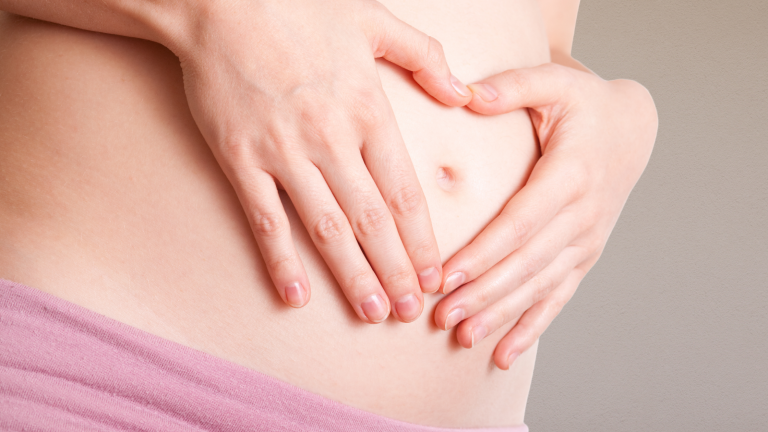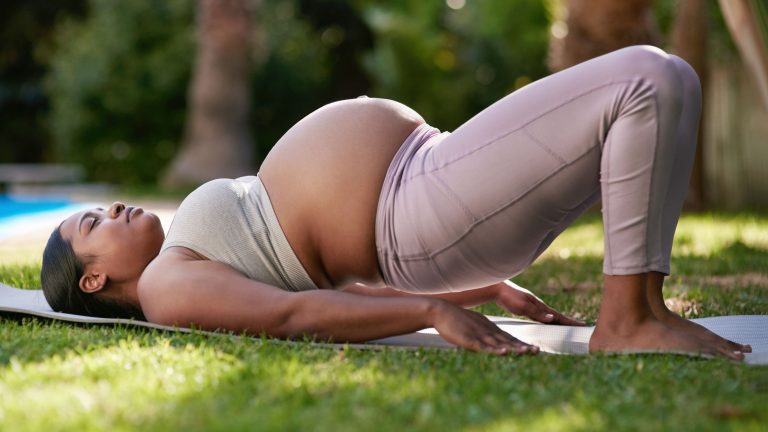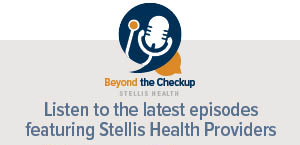Understanding the Stages of Pregnancy
What Should I Expect During Pregnancy Care?
We will see each other in the clinic roughly every 4 weeks until you are approximately 28 weeks, then every 2 weeks until you are 36 weeks along, then weekly until you deliver.
What Changes Can I Expect During The First Trimester?

- Feeling tired. This is a common symptom early in pregnancy. Your body is working hard to adjust to all the new physical changes. This can cause extreme fatigue. You may need to sleep longer than usual at night. If possible, you can take short naps during the day. Your energy will most likely return in the second trimester of pregnancy.
- Morning sickness/nausea. Morning sickness consists of nausea and vomiting. It is caused by pregnancy hormones. Many pregnant women have it to some degree in their first trimester. Despite what it sounds, morning sickness can occur at any time of day. Certain foods or smells might make you feel sick and sometimes vomit. Some women seem to feel sicker when their stomachs are empty. Morning sickness usually goes away by the second trimester.
- Frequent urination. Towards the end of the first trimester, you will feel like urinating more often. This is because your growing uterus pushes on your bladder. You may even leak a little urine when you cough or sneeze.
- Lightheadedness. Your body’s working overtime to make extra blood to support your baby. This can cause you to feel dizzy or lightheaded. Hunger, weakness, or stress can cause these symptoms as well.
- Heartburn. The muscles that break down food become more relaxed during pregnancy. Hormone changes also slow down this process. Food also stays in your stomach longer to give your body more time to absorb nutrients. All these things can cause or worsen heartburn.
- Constipation. You should be taking a daily prenatal vitamin that contains iron. The iron in the vitamin can lead to constipation. The slow process of breaking down food also can cause constipation, gas, and bloating. I may suggest taking fiber supplements or a stool softener to provide relief. Make sure you drink plenty of water (about 8 glasses per day). Tell your provider if you have severe problems as they may switch you to a different prenatal vitamin.
- Visible veins. Your body makes extra blood and your heart pumps faster to meet the needs of pregnancy. This can cause the blue veins in your belly, breasts, and legs to become more noticeable. You may develop spider veins on your face, neck, or arms. These are tiny blood vessels that branch out from a central area, like the legs of a spider. Wearing compression stockings, particularly as pregnancy progresses, may help with some of the discomfort related to vein changes in your legs. www.ameswalker.com is a good resource for compression stockings. You can also typically find these at local pharmacies.
- Skin changes. You may notice that your skin looks rosier and shinier. Some people call this a “pregnancy glow.” It is caused by increased blood circulation. Pregnancy hormones can cause extra oil on your skin. It may cause you to have flares of acne.
- Breast changes. Most women notice changes in their breasts early in pregnancy. The hormones in your body change to prepare for breastfeeding. As this occurs, your breasts may feel tender and swollen. You might notice small bumps forming in the area around your nipples. Your breasts will continue to grow and change throughout your pregnancy. They may feel even bigger and fuller later.
- Vaginal changes. The lining of your vagina will become thicker and less sensitive. You may notice a thin, white discharge—this is normal during pregnancy. Mild vaginal bleeding (spotting) is also normal and common. However, you should call me if you have vaginal bleeding. If the bleeding is heavy or painful, go to the emergency room.
- A growing belly. Your waistline will begin to expand as your baby and uterus grow larger. Depending on your size before pregnancy, you may not notice this change until the second trimester. It is normal to gain no or little weight in your first trimester.
- Emotional symptoms. Your hormones are on overload during pregnancy. You might feel moody, forgetful, or unable to focus. Fatigue and stress can increase these symptoms.
What About Exercise During Pregnancy?

For most people, exercise is very beneficial to overall health. This includes pregnant women. If you are healthy and your pregnancy is normal (not high-risk), it should be safe for you to exercise. We encourage it. If you have questions, we can discuss what will be the best kind of exercise for you.
Many women wonder if they should exercise when they are pregnant. They worry that physical activity may increase their risk of miscarriage. Later in their pregnancy, they may worry it will cause their baby to be born early or at a low birth weight. Exercise does not cause any of those things.
Here are other common concerns pregnant women have about exercise:
Is it safe for me to exercise during pregnancy?
Check with your provider to make sure that it’s safe for you to exercise. Some medical conditions make exercise harmful to you or your baby. If you have any of these conditions, you should not exercise (ask us if you have questions). Most of these conditions are uncommon. If you have no serious medical problems and a normal pregnancy, it’s probably safe for you to exercise.
Talk to your provider about exercise if you have:
- Certain kinds of lung or heart disease
- Cervical insufficiency
- Severe anemia
- Preeclampsia (high blood pressure induced by pregnancy)
- Preterm labor during the pregnancy
- Placenta previa or low-lying placenta
- Pregnancy with multiples
- Risk factors for preterm labor
How will exercise help me during pregnancy?
There are many benefits to exercising while pregnant.
Exercise:
- Promotes a healthy weight gain
- Reduces back pain
- Helps with constipation
- Improves your overall fitness
- Strengthens your body and prepares it for labor and delivery
- Helps you lose weight after your baby is born
How should I start an exercise program?
Before starting an exercise program, check with me. If you and your provider agrees, you can start exercising at a low level. Ensure your exercise does not cause pain, shortness of breath, or excessive tiredness. You may then slowly increase your activity.
Reduce your exercise level if you feel:
▪ Uncomfortable ▪ Short of breath ▪ Very tired
Some women establish an exercise routine before getting pregnant. If you have, it’s easier to keep exercising during pregnancy. If you haven’t exercised before, you need to start very slowly. Many women find that they need to slow down their level of exercise during pregnancy.
What types of exercises are best when I’m pregnant?
The most comfortable exercises don’t require your body to bear extra weight. Swimming and stationary cycling are good options. Walking and low-impact aerobics are usually well tolerated. You can also try modified yoga or modified Pilates. Strength training is also okay.
How much should I exercise when I’m pregnant?
Pregnant women should get 150 minutes of moderate-intensity aerobic exercise each week. At this level, you should still be able to talk but not sing. Divide the 150 minutes up however you like. You could do 30 minutes of exercise 5 times a week. Or you could do 10-minute increments several times a day on most days. If you were physically active before you became pregnant, you may be able to keep up your current routine. Always talk to your provider first.
Things to consider:
Exercising while pregnant is generally safe. But there are still some things you need to watch out for:
- Avoid activities that increase your risk of falls or injury. This includes contact sports and those that put the abdomen at risk of hitting a hard surface. Even mild injuries to the stomach area can be serious when you’re pregnant.
- After the first trimester, it’s best to avoid exercising while lying flat on your back for prolonged periods of time. The weight of the baby may interfere with blood circulation. Many exercises can be performed by tilting the torso 45 degrees, lying on the side, sitting, or standing. Also, avoid long periods of standing.
- When the weather is hot, exercise in the early morning or late evening. This will help prevent you from getting overheated. If you’re exercising indoors, make sure the room has enough ventilation. Use a fan to help keep you cool. Drink plenty of fluids, even if you don’t feel thirsty.
- Make sure that you’re eating a well-balanced diet. Pregnancy alone increases your food requirements by 300 calories a day. Exercising burns extra calories that your baby needs to grow and develop. If you exercise, ask your doctor how many additional calories you should get.
“I just wanted to shout out Natalie Roeser of Stellis Health. I had a pretty rough pregnancy. I saw one doctor a few months ago in the beginning who ended up going on maternity leave herself. I saw Natalie as one of my primaries before I was pregnant and I went back to her for the second half of my pregnancy.
Natalie showed me so much grace, love, and support during the second half of my pregnancy. I will never forget. She squeezed me in whenever I was having issues with my pregnancy whether it was emotional or physical. I ended up having an emergency C-section during my birth, where a different doctor had to take over. Natalie came into the room with me and held my hand from start to finish. If anyone needs a new OB/GYN please consider her.”
Buffalo MN Community Posts
What Problems Should I Tell My Doctor About?
- Blood or fluid coming from your vagina
- Sudden or severe abdominal or vaginal pain
- Contractions that go on for 30 minutes after you stop exercising
- Chest pain
- Shortness of breath
- Headache that is severe or won’t go away
- Dizziness and nausea
- Dim or blurry vision
What About Eating During Pregnancy?

- Eating for two isn’t really the free-for-all, guilt-free eating we often see in the movies. The truth is, eating healthy is more critical than ever during pregnancy. Sure, you’ll be able to indulge some cravings along the way, but for the most part, eating for two really means that you are making healthy choices for two and your food should reflect that. You should increase your daily calorie intake by about 300 calories per day.
- Taking the steps early on to provide the nutrition your baby needs can make a big difference in your pregnancy. You’ll feel better and have more energy to cope with your changing body. Plus, you’ll also feel good about what you are doing to ensure the health of your baby.
- In addition to eating right, you should also take a prenatal vitamin that contains folic acid. While this can’t replace a well-balanced diet, it’s a good safety net for supplementing nutrients you may be missing in your diet. As your pregnancy develops, your baby also needs vitamins to grow, and prenatal vitamins help provide the extra nutrition your body will need.
- There is a lot to consider when planning the proper nutrition for you and your baby. There are foods that your body needs now more than ever. There are also foods that you should avoid now that you’re pregnant.
Foods to add:
Vegetables (fresh, frozen, canned)
- Look for iron-rich spinach
- Dark, leafy vegetables are rich in folate ▪ Fruits (fresh, frozen, canned)
- If choosing a canned fruit, look for those canned in water or 100% fruit juice (no syrup) to limit excess sugar intake
- Protein
- Make sure all meats are cooked well
- Choose lean cuts
- Eat no more than 6 ounces of white tuna per week
- Remember that beans, peas, seeds, and nuts are good sources of protein
- Grains (whole grains are best)
- Dairy
Foods and beverages to avoid:
- Raw fish
- Raw shellfish
Certain cooked fish that contain large amounts of mercury:
- Swordfish, shark, tilefish, and king mackerel
- I’d also recommend looking at your local lake’s mercury level if eating fresh-caught fish
- Foods containing raw or undercooked eggs
- Cookie dough, cake batter, Caesar salad dressings, some sauces, and custards
- Foods that could expose you to listeria
- Lunch meat, meat spreads, and hot dogs
- Unpasteurized milk or juices
- Unpasteurized soft cheeses (blue cheese, queso blanco, Brie, feta,
Roquefort) - Raw sprouts (alfalfa, clover, mung bean, radish)
- Store-made salads (chicken salad, ham salad, tuna salad)
- Alcohol
- Sugary drinks (soda, sports drinks, some fruit juices)
- Caffeine (no more than 300 mg per day)
- Saccharin or other artificial sweeteners
What About Oral/Dental Health During Pregnancy?

Good oral care is an important part of your overall health. It also plays a vital role in staying healthy while you are pregnant. Your body undergoes a lot of changes during pregnancy. This includes increased blood flow, changes in hormones, and a variety of pregnancy symptoms. These can lead to dental problems that can affect your baby’s health. For instance, studies show that gum disease may be linked to premature birth and low birth weight.
Oral health helps take care of you and your baby. It can prevent possible health problems, including the following:
- Pregnancy gingivitis. This is the most common form of gum disease. In pregnancy, it may be caused by increased levels of progesterone. Symptoms include swollen, red gums that may be sore and/or bleed. Though mild, gingivitis can lead to periodontitis.
- Periodontitis. This is the most severe form of gum disease. It is caused by an infection in your gums. The infection can spread to your teeth and bones, which can lead to tooth loss.
- Tooth decay. Tooth decay occurs when bacteria (plaque) eat away at the enamel on your teeth. In pregnancy, it may be caused by increased acid in your mouth or increased sugar in your diet.
- Cavities. Cavities are a result of tooth decay. They are small holes in your teeth where acid or sugar eats away the enamel.
- Loose teeth. The bones and tendons in your mouth (and other body parts) can move and loosen when you are pregnant. This shouldn’t cause harm unless you have other symptoms.
Below are ways that you can maintain oral health during pregnancy to prevent dental problems:
- Visit your dentist for a checkup and cleaning. Good practice for oral health is to visit the dentist twice a year. This should continue before, during, and after pregnancy. When you are pregnant, the second trimester is ideal for a checkup. Tell your dentist you are pregnant in advance. They may alter the services and/or medicines they provide.
- Brush and floss your teeth regularly. You should brush at least two times a day and floss at least one time a day. This may be hard if you have nausea, which makes it even more important. Try to brush at a time of day you feel better, or you can use mouthwash. Choose toothpaste that helps fight plaque and gingivitis.
- Rinse your mouth with mouthwash. You can do this 1-2 times a day. Choose a mouthwash that contains fluoride but not alcohol.
- Limit the amount of sweets you eat. This may be hard with pregnancy cravings, but sugar can cause tooth decay. Eat a balanced diet of fruits, vegetables, grains, and dairy. Brush more often if you eat frequent snacks throughout the day.
- Limit the amount of sugary drinks you consume. Try to stay hydrated by drinking lots of water.
What about sex during pregnancy?
- Whether or not you want to have sex during your pregnancy is a personal choice. Some women enjoy it because it takes the worry out of birth control. Others may worry about harming the baby. However, unless you are having pregnancy complications or your pregnancy is considered to be high-risk, it’s generally safe to have sex while you are pregnant. Of course, you will need to choose comfortable positions, especially during the later months.
- Some women feel sexier when they are pregnant, which increases their interest in having sex. Changes to your hormones and shape may contribute to that feeling.
- If you are having a healthy pregnancy, the amniotic fluid surrounding the baby during your pregnancy protects the baby. If you’re worried that sex or orgasm will trigger your labor, don’t worry. Studies show that this is not the case in a healthy pregnancy.
- If your physical health or discomfort doesn’t allow you to have sex during pregnancy, consider it an opportunity to grow close to your partner in other ways. Holding hands, sitting close, kissing, or giving each other massages can help you feel close.
Things to consider
Talk with your provider before having sex during pregnancy if you have the following concerns:
- Pain during sex.
- Vaginal bleeding (light spotting after sex is not unusual, you should be evaluated if the bleeding is heavier—like a period).
- Leaking amniotic fluid.
- Your cervix opens too soon.
- The placenta (the organ that carries food and oxygen to your baby while pregnant) covers the opening to your cervix. When this happens, it is known as placenta previa. This would be noted at the time of your 20-week ultrasound.
- You are pregnant with multiples (more than 1 baby).
- You have a history of miscarriage, preterm labor, or preterm birth.
Of course, if your partner has a sexually transmitted infection or disease (STI/STD), you should avoid having sex. STDs can spread to you and your baby. Having oral or anal sex requires extra caution as well. If you have anal sex and vaginal sex immediately after, you are at risk of spreading fecal bacteria to your vagina. The bacteria can lead to an infection.
While sexual orgasms may be improved with pregnancy, there is a chance it could cause contractions in your uterus (but not labor). Orgasms and the hormones found in a man’s semen (the fluid that comes out of his penis) cause contractions.
Physical discomfort may cause you to tell your partner you are not interested in sex during pregnancy. Your weight, back pain, breast tenderness, nausea, and certain sexual positions may be uncomfortable. Emotionally, you may not be interested either. Hormones can affect your sex drive. Worrying about the baby can also affect your desire.
What About Chemical Use During Pregnancy?
Pregnant women should avoid tobacco, alcohol, and drug use. Even minor use carries risks for health issues in the baby, including short- and long-term conditions or even death.
The American College of Obstetricians and Gynecologists (ACOG) supports education on the risks of substance use and abuse during pregnancy. For people who appear to have a problem, physicians should prescribe treatment and/or counseling. Please talk with us if you have concerns about substance abuse.
Stop using tobacco, alcohol, and drugs if you are pregnant, trying to become pregnant, or think you may be pregnant. This is because anything you consume gets passed to the baby through your blood and placenta. The first trimester is most critical to your baby’s development. Talk to us if you need help quitting.
Tobacco
- Smoking can increase your risk of miscarriage and preterm birth. Your baby could have a low birth weight or certain birth defects. Smoking during and/or after pregnancy also has been linked to sudden infant death syndrome (SIDS).
- Other tobacco products, such as e-cigarettes, carry the same risks as smoking. There is no safe amount of tobacco or time to use tobacco during pregnancy. Quitting smoking improves your health and your baby’s health. You also should try to avoid secondhand smoke when you are pregnant.
Alcohol
- Alcohol can increase your baby’s risk of major birth defects. One example is fetal alcohol disorder. It can cause problems such as slow growth, brain damage, developmental problems, and a small head.
- There is no proof that drinking alcohol in a certain amount or at a certain time during pregnancy prevents these risks. Some data do suggest that limited alcohol may not pose harm to the fetus, but it is unclear how much is too much. There are no certain alcoholic drinks that are safer than others. Unless your doctor says otherwise, it is best to avoid all alcohol throughout your entire pregnancy.
Drugs
- Using illegal drugs, such as cocaine, heroin, and marijuana (still illegal for recreational use in most states), carry major risks. They can cause miscarriage, preterm birth, and birth defects. Your baby could be born with drug addiction. This is called neonatal abstinence syndrome. It causes your baby to go through withdrawal, which is very painful. It often may have lasting health effects.
- The use of opioids during pregnancy can be harmful as well. In addition to the risks above, you could have placental abruption, or your baby could have fetal growth problems. If you take opioids for a medical issue, talk to your doctor about when and how to quit. If you have an opioid addiction, your doctor may prescribe more serious treatment. One option is medication-assisted therapy (MAT)—talk to us about this.
- Once you know you’re pregnant, talk to your doctor about all the medicines you take. Some prescription and over-the-counter (OTC) drugs are okay to keep using, while others are not. For some medicines, you may need to switch the dosage or type. Please see our handout on acceptable over-the-counter medications in pregnancy. Do not stop or start using a new drug without talking to us first. This includes vitamins and supplements.
How Is My Baby Developing During The First Trimester?

From the moment of conception to the time of delivery, your growing baby goes through several stages of development. The first third of your pregnancy is called the first trimester. It is made up of weeks 1 through 12 or 13 of pregnancy. Here is a summary of how your baby develops during the first trimester:
- Pregnancy begins when a man’s sperm fertilizes a woman’s egg. Since you don’t always know when fertilization occurred, doctors calculate pregnancy based on the first day of your last menstrual period (LMP). Your doctor will count forward 40 weeks from your LMP to estimate the due date. Most births occur between weeks 38 and 42. If you have an ultrasound early in your pregnancy, your doctor may measure the baby to determine your due date instead. Or your doctor will use an ultrasound to confirm your due date. Once your due date is established, it will not change with any future ultrasounds.
- After conception, your baby begins a period of dramatic change known as the embryonic stage. This stage runs from the 5th through the 10th week of pregnancy. During this stage, the baby is called an embryo.
There are numerous changes that occur during the embryonic stage:
- First, the cells of the embryo (called embryonic stem cells) multiply and develop. They become the hundreds of different types of cells needed to make a whole human body. Your baby’s major organs and body parts begin to take shape.
- The placenta forms during the embryonic stage. The placenta takes nutrients, oxygen, and water from your blood and passes these along to your baby through the umbilical cord. It also removes the baby’s waste. The placenta will filter out most of the harmful substances that may be present in your body.
- The amniotic sac forms during this stage as well. It is filled with amniotic fluid, which surrounds and protects your baby in the uterus.
Below are some of the highlights that occur during the embryonic stage:
- Nervous system. This is one of the first things to develop. It includes the formation of your baby’s brain, spinal cord, and nerves.
- Heart. An S-shaped tube forms on the front of the embryo. This will become your baby’s heart. At first, the heart does not beat, but soon it starts beating and pumping an early form of blood.
- Face. Your baby’s facial features begin to take shape. The eyes and ears form on the sides of the face, and eyelids form to protect the developing eyes. Pieces of tissue grow and join together to create the forehead, nose, cheeks, lips, and jaw. The nasal passages, mouth, and tooth buds form the baby’s first teeth. A tongue with taste buds also forms.
- Arms and legs. At first, your baby’s arms and legs begin as little buds that sprout from the embryo’s sides. As they grow, the arms look like paddles, and the legs look like flippers. A ridge appears on the end of each one. They eventually become your baby’s fingers and toes.
- Sexual organs. Cells form to become your baby’s eggs or sperm. Your baby’s penis or vagina is visible at the end of the embryonic period. However, it is still too soon to tell on an ultrasound if your baby is a girl or boy.
- Muscles and movement. Muscles develop, and the embryo begins to move. At first, it’s only twitching and reacting to touch. Once the nerves and muscles start working together, your baby can start moving on purpose.
By the end of the embryonic stage at week 10, your baby will be about 1-inch long. That’s still too small for you to feel your baby’s movements. You’ll probably feel them starting in the middle of the second trimester.
The last 2 to 3 weeks of the first trimester are the beginning of the fetal stage. In those weeks, fingernails and toenails begin to form, and the kidneys start working. By the end of the first trimester, your baby has tripled in length to about 3 inches long. After the embryonic stage, the fetal stage begins, and your baby is called a fetus. This stage runs from the 11th week until birth. Your baby will grow longer and gain weight quicker. Their organs and body parts will continue to develop.
What If I Have More Questions?
You can always ask your provider at your prenatal visits. If you have a question that can’t wait until your next prenatal visit, please call.
Your Team Members May Include
OB/GYN
OB/GYN
Resources
Books:
- Expecting 411, What to Expect when you are Expecting, Mayo Clinic Guide to a Healthy Pregnancy
Apps:
- CentraCare Baby
- My Pregnancy Today o I’m Expecting
We look forward to sharing this wonderful journey with you!
Classes Designed To Take The Guesswork Out Of Childbirth
As a part of your prenatal care package at Stellis Health, we provide two prenatal education sessions for you and your partner or support person to attend at key points during your pregnancy. The classes are available bi-monthly at our Monticello and Buffalo clinic locations at various times throughout the day. Please choose the class dates and locations that best fit your schedule and routine, regardless of the clinic location where you routinely see your provider. Classes are approximately one hour long.
It’s important for you to attend both classes during your pregnancy to ensure you feel well-prepared for this exciting change in your life. By knowing what to expect during pregnancy and childbirth, your anxiety will be reduced, and you’ll feel more in control.














